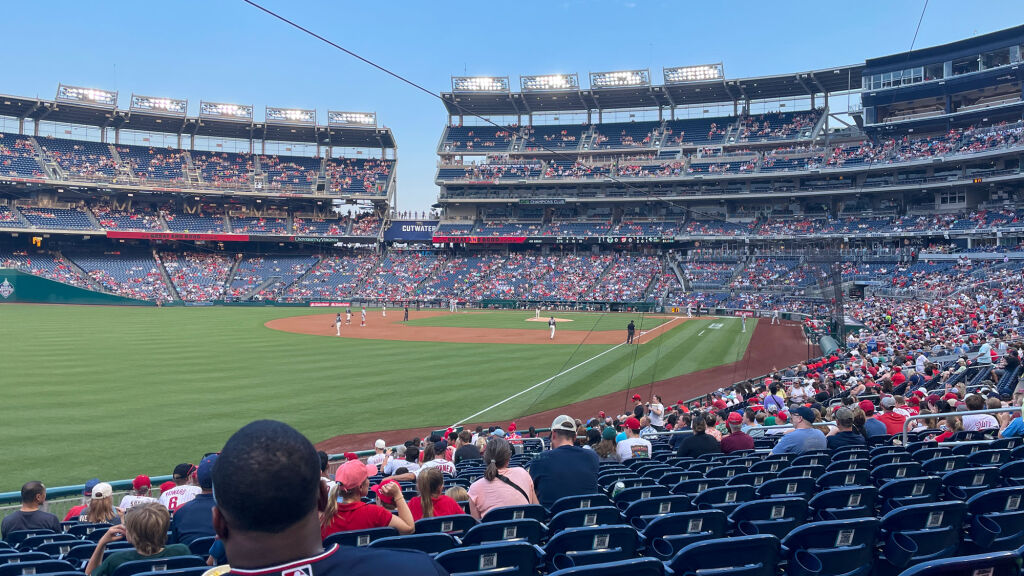Pronunciation, Prestige, and Punchlines: Q&A with David Crystal
We’ve all had that moment: you’re talking or reading something out loud and you come across a word you’ve read before but have never heard. How do you pronounce it? Is that tricky health food \ah-sai-EE\ or \ah-KAI\? Will people judge you poorly if you say it wrong?
Proper pronunciation can be a minefield in today’s world — but at least it’s not Victorian England, where diction could make or break your social standing. Eminent linguist and English-language scholar David Crystal explores the era’s preoccupation with pronunciation and prestige in his upcoming book, We Are Not Amused: Victorian Views on Pronunciation as Told in the Pages of Punch (due out in October). For Planet Word, he explores pronunciation as a social identifier — and a ripe source of comedy — through British English then and now.
Q: Your upcoming book looks at accents and pronunciation in Victorian England, a place and time dominated by class distinctions. How did pronunciation and accent shape social identity in those days?

Crystal’s next book is due out in October from The University of Chicago Press
A: There was an enormous growth in social class-consciousness in the 18th century, arising from the emergence of a new middle class, who had to find an identity that kept them apart from the working class (from which many of them came) and from the upper class (who wanted to keep themselves separate). The last quarter of the century saw the growth of the elocution movement, which aimed to give the upwardly mobile an accent that would identify them as cultured.
The development of the prestige accent known as “received pronunciation” (RP) in England took place at that time, and in the early 19th century became the must-have accent in the private schools, out of which eventually came the missionaries, civil servants, army officers, and other “people of power” who took English around the world (through the British Empire), and in due course became the sound of the BBC. So the Victorian period is the first in which accents came to be institutionalized, and thus parodied in the pages of satirical magazines, preeminently in Punch, which began publication in 1841 — which is why I chose this period as the focus for my book. The articles and cartoons from Punch are a rich source of insight into Victorian values.
Q: How much have those views carried over into modern-day England, and how much have they changed?
A: That’s the question I ask at the very end of the book. I think it has two answers. On the one hand, class distinction isn’t as marked as it used to be, and I see a great deal of accent tolerance these days — indeed, accent variation is the most noticeable feature of many settings where there used to be only RP spoken, such as the BBC. We need only look at TV commercials, where it is rare these days to hear characters speaking in RP, and normal to hear a wide range of regional accents. Times have definitely changed. On the other hand, every so often I read horror-stories in the press of how someone has been taken to task for having a certain kind of accent, and some accents are still quite widely viewed as “inferior” or “ugly,” so Victorian views are still very much around.
Q: Do you see similar views of pronunciations in other cultures, English-speaking and non-English-speaking?
A: I’ve never come across a culture that doesn’t have views about pronunciation, though the range of accents within a community does vary greatly around the world. There’s nowhere quite like the UK for accent variation, thanks to the myriad influences on the language over the past 1,500 years. I estimate that there’s a noticeable regional accent change, on average, every 25 miles or so around the UK. The situation is different in countries like Australia and Canada, which had a different pattern of settlement, but even there we find important accent contrasts, both regionally and socially. And in all settings, within and between accents, we encounter language change, with younger people speaking differently from the older generation, and different social groups favoring different norms and complaining about those who don’t share those norms.
Q: What makes accents such a rich source of humor?
A: Because they are such an important index of identity. People can express their identities (regional, social, occupational, personal…) in many ways, such as by clothing, hairstyle, and makeup, but these visual features have serious limitations. They can’t be seen in the dark or around corners. Accents, by contrast, are easily perceivable in such circumstances. And whereas one has to purchase clothing and suchlike, accents cost nothing. So they have evolved as the most natural and universal means of identifying people as members of a group or community and, as such, they are an easy target for anyone who wants to poke fun at them. The fun-pokers can be very good at it, too. Everyone has a basic ability to “put on an accent” when telling a story or a joke, and some people are excellent mimics. The sources of humor are endless, simply because there are so many accents to play with.
 David Crystal is a linguist, lecturer, and author of several books, most recently The Story of Be: A Verb’s-eye View of the English Language, Making Sense: The Glamorous Story of English Grammar (2017), and The Disappearing Dictionary: A treasury of lost English dialect words. He lives in Holyhead, North Wales and is an honorary professor of English at the University of Wales, Bangor.
David Crystal is a linguist, lecturer, and author of several books, most recently The Story of Be: A Verb’s-eye View of the English Language, Making Sense: The Glamorous Story of English Grammar (2017), and The Disappearing Dictionary: A treasury of lost English dialect words. He lives in Holyhead, North Wales and is an honorary professor of English at the University of Wales, Bangor.



